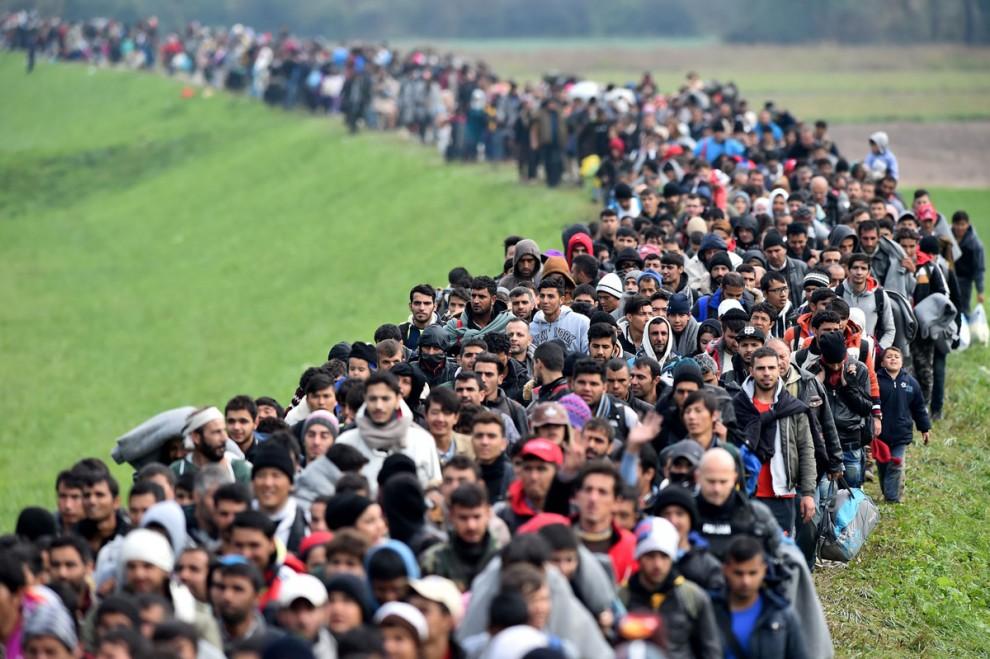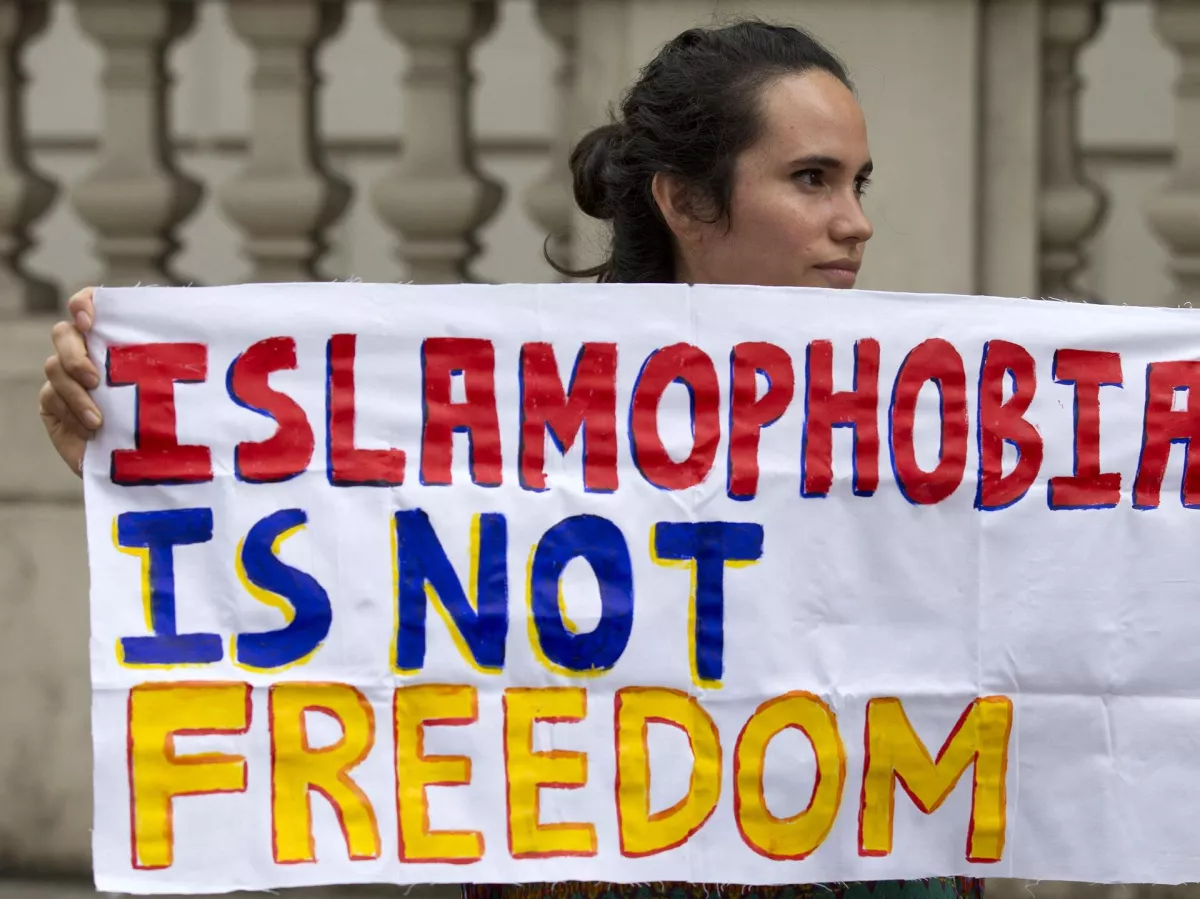Islamophobia on rise in Europe: Main trends and consequences Article by The Halal Times
Global Islamic media platform The Halal Times has published an article dedicated to the rise of Islamophobia in Europe. Caliber.Az reprints this material.
In recent years, Europe has seen a troubling surge in Islamophobia, affecting the lives of millions of Muslims who call the continent home. As incidents of discrimination, hate speech, and even physical violence grow more frequent, many wonder why this fear and prejudice are on the rise, and what can be done to combat it.
Understanding Islamophobia isn’t just about addressing the symptoms of hate—it’s about acknowledging the root causes, challenging stereotypes, and fostering a more inclusive society.
This article dives deep into the rise of Islamophobia in Europe, exploring its causes, impact, and potential solutions. It aims to provide insights into how individuals, communities, and governments can help change the narrative and reduce anti-Muslim sentiment.
The Rise of Islamophobia in Europe: Key Trends
The resurgence of Islamophobia in Europe is not a new phenomenon, but it has become more pronounced in recent years. Here are some key trends that have contributed to the escalation:
1. Increasing Far-Right Influence
Far-right political parties across Europe have gained momentum by capitalizing on fears about immigration and cultural change. They often portray Muslims as a threat to European identity and values, using Islamophobic rhetoric to garner support. Countries like France, Germany, Austria, and the Netherlands have seen far-right parties become more prominent, and their influence has contributed to the normalization of anti-Muslim sentiments.

2. Media Portrayals of Muslims
The media plays a significant role in shaping public perceptions, and negative portrayals of Muslims in the European press have been linked to the rise in Islamophobia. News outlets often focus on issues like terrorism, radicalization, and immigration, frequently associating these topics with Islam, even when there is no direct connection. This bias reinforces stereotypes and contributes to a climate of fear and mistrust.
3. Terrorist Attacks and Security Concerns
High-profile terrorist attacks carried out by individuals or groups claiming to act in the name of Islam have fueled Islamophobic attitudes. The fear of terrorism has led to a climate in which Muslims are often viewed with suspicion, leading to racial profiling and discriminatory security measures. Even though the vast majority of Muslims condemn violence, the actions of a few have had far-reaching consequences for many.
4. The Refugee Crisis
The influx of refugees from Muslim-majority countries has intensified fears about immigration and cultural integration. The refugee crisis has been used by some to justify restrictive immigration policies and to frame Muslims as “outsiders” who are unable or unwilling to integrate into European society.

5. Legislative Actions Targeting Muslim Practices
Several European countries have introduced laws that disproportionately target Muslim practices. For instance, bans on face veils, restrictions on halal meat production, and limits on mosque construction are often justified as measures to protect secularism or cultural values. However, such laws can marginalize Muslim communities and contribute to a sense of exclusion.
Impact of Islamophobia on Muslims in Europe
The rise of Islamophobia has far-reaching consequences, not just for Muslim communities, but for European society as a whole. Here are some of the significant impacts:
1. Psychological and Social Effects
Living in an environment of discrimination and hostility can have severe psychological effects on Muslims, leading to stress, anxiety, and depression. Socially, Islamophobia fosters division and alienation, making it difficult for Muslims to feel accepted or to fully participate in society. It also affects young Muslims who may struggle with their identity and sense of belonging.
2. Economic Discrimination
Muslims in Europe often face economic discrimination, including barriers to employment and unequal access to housing and education. Studies have shown that individuals with Muslim-sounding names or who wear Islamic attire face higher levels of rejection in the job market compared to their non-Muslim counterparts.
3. Hate Crimes and Violence
Islamophobic rhetoric can incite violence, leading to an increase in hate crimes against Muslims. Reports of vandalism at mosques, physical assaults on individuals wearing Islamic clothing, and verbal abuse in public spaces have become more common across Europe. This violence not only endangers lives but also creates a climate of fear that restricts Muslims’ freedom of movement and expression.
4. Erosion of Civil Liberties
In some cases, Islamophobia has led to policies that infringe on civil liberties, such as increased surveillance of Muslim communities or restrictions on religious practices. These policies often disproportionately target Muslims, creating a two-tiered system of rights that undermines the principles of equality and justice.

How Can Europe Address the Rise of Islamophobia?
While the problem may seem daunting, there are concrete steps that can be taken to address Islamophobia and foster a more inclusive Europe. Here are some strategies that can help bring about positive change:
1. Promoting Inclusive Policies
Governments should enact policies that promote inclusion and combat discrimination. This includes stronger anti-discrimination laws, support for victims of hate crimes, and initiatives that encourage diversity in the workplace and schools. Policies should aim to protect the rights of Muslims while fostering social cohesion.
2. Educating Against Prejudice
Education is a powerful tool in combating Islamophobia. Schools, universities, and community organizations should promote intercultural understanding and teach about the dangers of prejudice and hate. This could involve incorporating Islamic history and culture into curricula, organizing interfaith dialogues, and encouraging critical thinking about media portrayals of Muslims.
3. Empowering Muslim Voices
Muslims should be given a platform to share their experiences and perspectives, whether in the media, politics, or public life. Increasing the representation of Muslims in leadership roles can help challenge stereotypes and provide a more nuanced understanding of the diverse Muslim community in Europe.
4. Building Solidarity Across Communities
Fighting Islamophobia requires solidarity between Muslims and non-Muslims. Community leaders, civil rights organizations, and individuals must come together to denounce hate speech and acts of violence. By building alliances across different groups, it is possible to create a united front against all forms of discrimination.
The rise of Islamophobia in Europe is a complex challenge, but it is not insurmountable. By taking proactive steps to address the root causes of anti-Muslim sentiment, fostering education and understanding, and enacting inclusive policies, Europe can move towards a future where Muslims feel accepted and valued.
Everyone has a role to play in combating Islamophobia. Whether it’s speaking out against injustice, educating oneself about Islam, or supporting policies that promote equality, each action can contribute to creating a more inclusive society. The fight against Islamophobia is not just about protecting one community; it’s about upholding the values of human dignity and justice that form the foundation of European society.
By Aghakazim Guliyev








